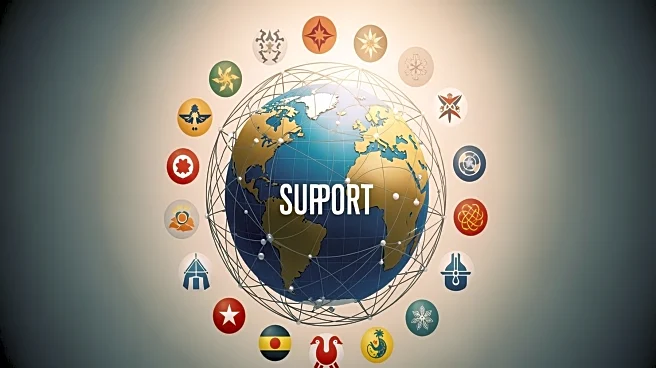What's Happening?
Taiwan's Vice President Hsiao Bi-khim has returned from a significant diplomatic trip to Europe, asserting that Taiwan is not alone and has growing international support. During her visit, Hsiao attended
the Inter-Parliamentary Alliance on China's summit in Brussels, emphasizing Taiwan's resolve and democratic values. The trip marks a rare occasion for a senior Taiwanese official to visit Europe, given the potential backlash from Beijing. China's mission to the EU condemned the visit, viewing it as interference in China's internal affairs and a threat to political trust between China and the EU.
Why It's Important?
The vice president's trip underscores Taiwan's efforts to strengthen international alliances amidst ongoing tensions with China, which claims Taiwan as its territory. The visit highlights Taiwan's strategic diplomatic initiatives to counter China's influence and assert its presence on the global stage. This development could impact U.S. foreign policy, as Taiwan seeks support from like-minded countries, including the U.S., to bolster its security and international standing. The situation may influence trade relations and geopolitical strategies in the Asia-Pacific region.
What's Next?
Taiwan is expected to continue its diplomatic outreach, seeking to solidify partnerships with European nations and other global allies. The potential for increased diplomatic and economic cooperation with Europe could arise, enhancing Taiwan's international profile. Meanwhile, China may intensify its diplomatic and military pressure on Taiwan, potentially leading to further regional tensions. The U.S. and other allies may need to navigate complex diplomatic challenges to support Taiwan while managing relations with China.
Beyond the Headlines
The diplomatic dynamics between Taiwan and China raise ethical questions about sovereignty and self-determination. The cultural and historical context of Taiwan's identity plays a crucial role in its international relations. Long-term shifts in global alliances and power structures could result from Taiwan's strategic engagements, influencing future geopolitical landscapes.










